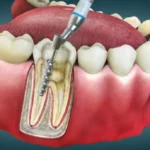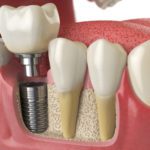The Quiet Battle: How Oral Appliances are Changing the Way We Treat Sleep Apnea
Snoring isn’t just annoying, it could be a sign your body’s struggling to breathe at night. Millions of people live with sleep apnea without even realizing it. The constant tossing, the morning grogginess, the fog that never lifts—it’s more than just “bad sleep.” It’s your body waving a red flag.
For years, bulky CPAP machines were the go-to fix. Effective? Yes. Comfortable? Not so much. That’s where oral appliances come in. These small, custom-fitted devices are turning things around for people who can’t deal with the hassle of a CPAP.
They’re quiet, portable, and way less intimidating. And for many, they’re just as effective. The best part? They fit right into your nightly routine without throwing everything off.
We’re breaking down how these little devices are changing the game for sleep apnea treatment and why more doctors are recommending them as a first-line option instead of a last resort.
How do oral appliances compare to CPAP machines for treating sleep apnea?
Oral appliances and CPAP (Continuous Positive Airway Pressure) machines are both effective treatments for obstructive sleep apnea (OSA). Still, they differ significantly in design, comfort, and how they fit into a patient’s lifestyle. Key Comparisons Between Oral Appliances and CPAP Machines:
- Comfort & Convenience: Oral appliances are small, custom-fitted devices that resemble mouthguards and are worn during sleep. They’re quiet, portable, and easy to use—ideal for patients who find CPAP masks bulky, noisy, or uncomfortable to wear.
- Mechanism of Action: CPAP machines work by delivering constant air pressure through a mask to keep airways open. Oral appliances, on the other hand, reposition the jaw or tongue to prevent airway collapse. Both improve airflow, but through different methods.
- Effectiveness: CPAP is generally more effective for moderate to severe OSA. However, for mild to moderate cases—or for patients who can’t tolerate CPAP—oral appliances can offer comparable results with greater ease of use.
- Compliance: Many patients are more consistent with oral appliances due to their simplicity and comfort, which can lead to better long-term outcomes compared to poorly tolerated CPAP therapy.
- Travel-Friendly: Oral appliances are far easier to travel with—no power cords, masks, or machines—making them a preferred option for active lifestyles.
While CPAP remains the gold standard for severe cases, oral appliances offer a practical, patient-friendly alternative—especially for those seeking a quieter, more manageable treatment option.
What changes have oral appliances introduced in sleep apnea treatment?
Oral appliances have introduced several meaningful changes in the treatment of obstructive sleep apnea (OSA), especially for patients seeking a quieter, more comfortable alternative to traditional CPAP therapy.
These custom devices, fitted by dental professionals trained in sleep medicine, are revolutionizing how patients manage sleep apnea—both clinically and in their day-to-day lives. Key Changes Introduced by Oral Appliances:
- Increased Treatment Accessibility: Oral appliances make treatment more accessible for patients who are CPAP-intolerant or hesitant to seek help due to the stigma or discomfort associated with bulky equipment.
- Improved Patient Comfort and Compliance: Because they are lightweight, silent, and custom-fitted, patients are more likely to wear oral appliances consistently, resulting in better sleep quality and improved treatment outcomes.
- Simplified Daily Use and Travel: Unlike CPAP machines, oral appliances require no power, tubing, or cleaning of mechanical parts. This convenience makes them ideal for travel and active lifestyles.
- Expanded Role for Dental Professionals: Dentists are now more involved in managing sleep-disordered breathing, working alongside sleep physicians to provide a multidisciplinary approach to care.
- Focus on Early Intervention: Oral appliances are often used earlier in treatment, especially for mild to moderate OSA or as a backup for CPAP users, helping prevent long-term complications.
Oral appliances have helped demystify and simplify sleep apnea treatment, offering patients effective and user-friendly options that improve both compliance and quality of life.
Why are oral appliances considered a discreet option for sleep apnea?
Oral appliances are considered a discreet option for sleep apnea because they offer a low-profile, quiet, and easy-to-use alternative to bulky and often intrusive CPAP machines.
Designed to resemble a mouthguard or orthodontic retainer, these custom-fitted devices are worn inside the mouth during sleep, making them nearly invisible to others and allowing for easy incorporation into nightly routines. Reasons Oral Appliances Are Viewed as Discreet:
- Compact and Inconspicuous Design: Unlike CPAP machines, which feature masks, hoses, and loud airflow, oral appliances are small, internal devices that don’t draw attention and require no external equipment.
- Silent Function: Oral appliances operate silently, unlike CPAP machines that may hum or disrupt sleep for both the user and their partner.
- No Power Source Needed: They don’t require electricity, making them travel-friendly and easy to use without needing to be plugged in or set up.
- Comfortable and Personalized Fit: Each appliance is custom-made to fit the patient’s mouth, reducing bulk and enhancing comfort, making consistent nightly use more realistic.
- Less Social Disruption: Because they’re subtle and quiet, oral appliances don’t interfere with sleepovers, travel, or shared sleeping spaces—making them appealing for people who value privacy.
This combination of effectiveness and subtlety makes oral appliances a discreet and patient-friendly solution for managing sleep apnea without altering one’s lifestyle or sleep environment.
Can oral appliances effectively address different types of sleep apnea?
Oral appliances can effectively address certain types of sleep apnea, particularly mild to moderate obstructive sleep apnea (OSA). However, their effectiveness varies depending on the specific type and severity of the condition.
Effective For:
Mild to Moderate Obstructive Sleep Apnea (OSA): Oral appliances are most successful in treating OSA caused by airway obstruction from soft tissues collapsing during sleep. These devices reposition the jaw or tongue to keep the airway open, improving airflow and reducing apneic events.
Primary Snoring: For individuals who snore without true apnea, oral appliances can reduce or eliminate snoring by preventing airway narrowing.
Less Effective For:
Severe OSA: While some patients with severe OSA benefit from oral appliances—especially if they are CPAP-intolerant—these cases often require CPAP or combination therapy for full effectiveness.
Central Sleep Apnea (CSA): CSA is caused by the brain failing to signal proper breathing, not by physical obstruction. Since oral appliances don’t affect respiratory control, they are generally not effective for CSA.
In Combination with Other Treatments:
For patients who cannot tolerate CPAP or require a more integrated approach, oral appliances may be used alongside positional therapy, weight loss, or surgery.
Oral appliances are a highly effective, non-invasive option for managing mild to moderate OSA but are not suitable for treating central sleep apnea or all severe cases. A sleep study and consultation with a sleep specialist or dentist trained in dental sleep medicine are essential to determine the best treatment approach.
Breathe Easier Tonight with Discreet Sleep Apnea Solutions
At Paradise Dental Smiles, we’re helping patients sleep better with comfortable, custom-fit oral appliances designed to treat obstructive sleep apnea—quietly and effectively. These small, non-invasive devices gently reposition your jaw or tongue to keep your airway open while you sleep, offering a discreet alternative to bulky CPAP machines.
Perfect for mild to moderate sleep apnea or for those who can’t tolerate CPAP, our oral appliances are travel-friendly, easy to use, and surprisingly effective. Don’t let sleep apnea disrupt your nights or your health. Schedule a consultation today and discover a quieter path to restful, uninterrupted sleep.



